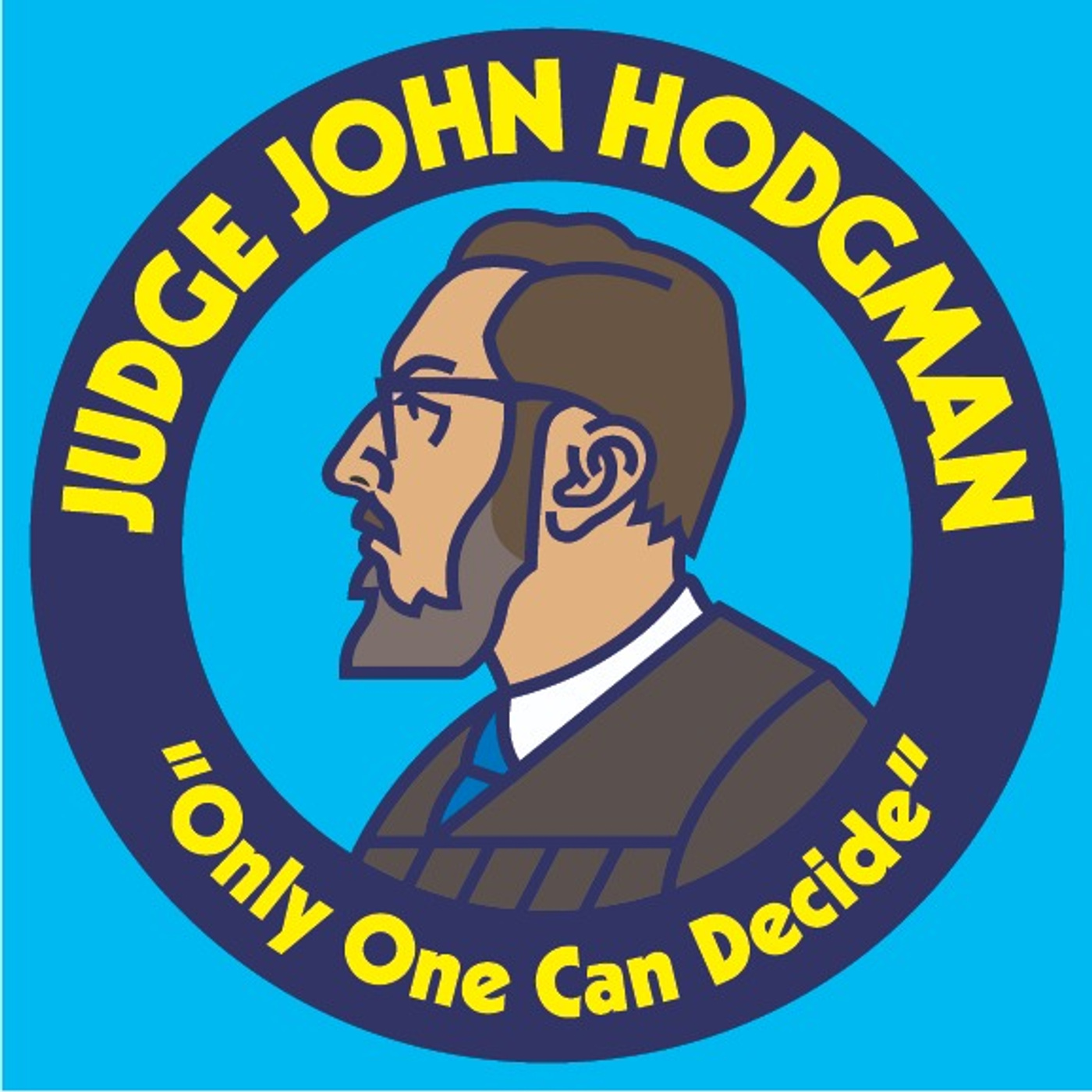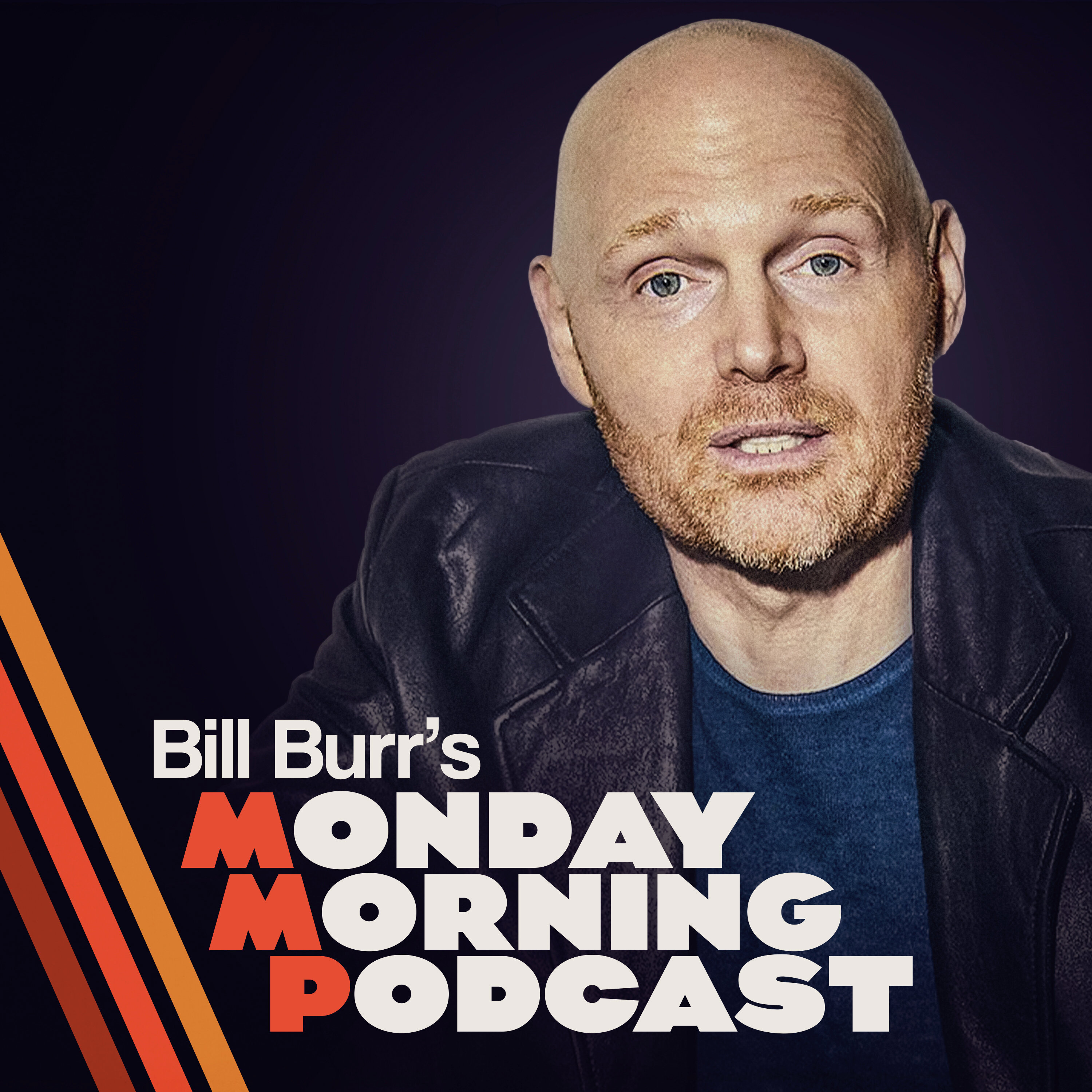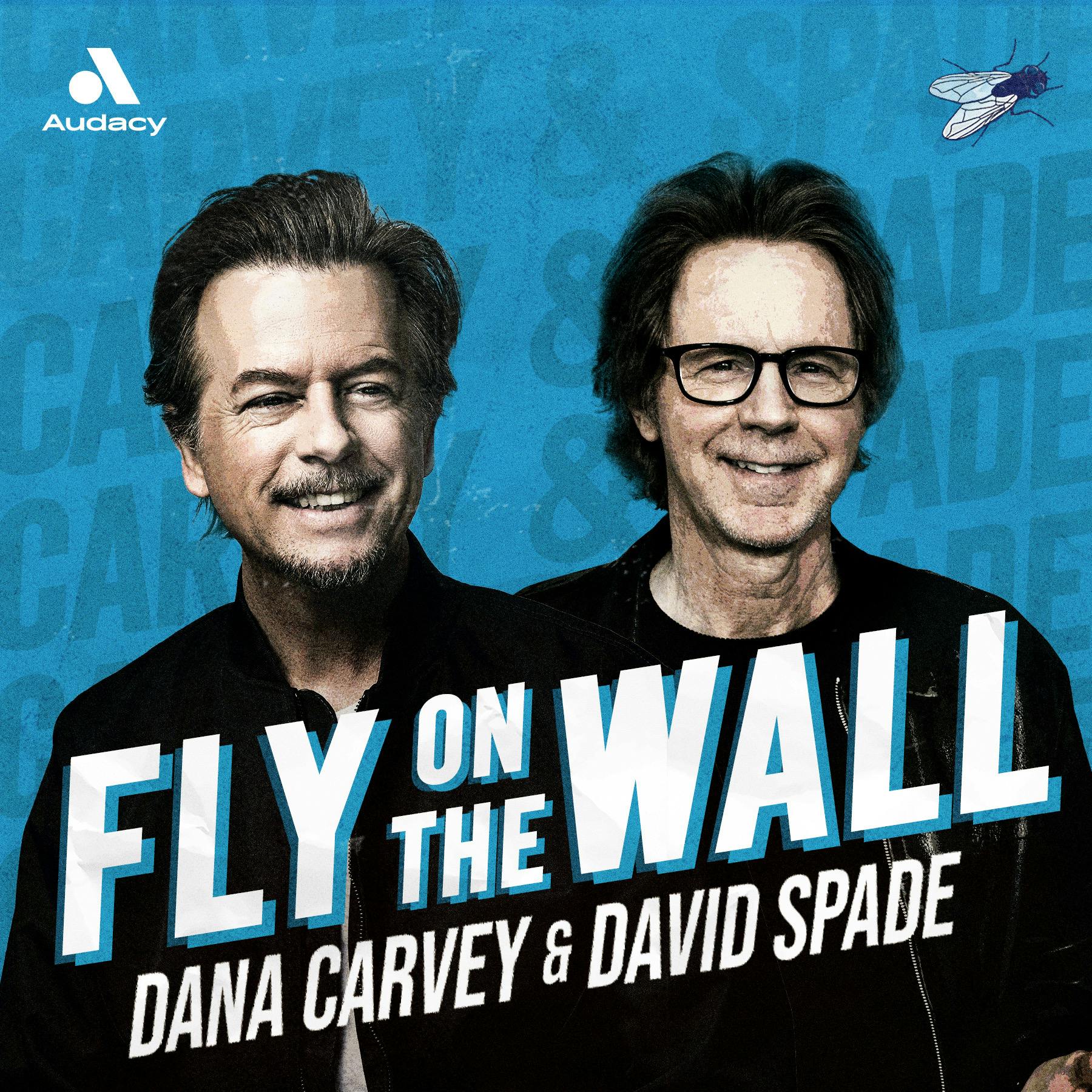
TAGQ (That's A Good Question)
TAGQ (That's A Good Question)
Enough With The AI
Use Left/Right to seek, Home/End to jump to start or end. Hold shift to jump forward or backward.
This episode dives into the science behind wind and weather, exploring how air pressure dynamics affect our everyday experiences, transitioning into personal stories about acclimating to colder seasons. Listeners will also learn about cloud seeding, the role of AI in education, and how social media shapes our understanding of current events.
• Examining wind and its origins through air pressure dynamics
• Discussing personal acclimation to seasonal changes
• Exploring cloud seeding’s impacts and common misconceptions
• Analyzing the influence of AI tools on learning and education
• Discussing information acquisition via social media and its implications
windy outside tonight. It is, yeah, yeah, someone told me it was gonna get up to 60 miles an hour, but I don't know how true that is. They were hoping that class would be canceled tomorrow because of falling trees, but I'm going to tell you not on Whidbey anymore, so it would be kind of interesting to see fallen trees in the roads of Seattle. You know where the wind comes from.
Scott:Is it kind of like when you open up a Coca-Cola bottle and the pressure escapes? No, it's like I don't know if this happens in the fall, but it happens in the spring. When it heats up near the equator, the air there rises and it keeps the sort of the speed that the equator. It keeps up with the equator Right, but it migrates north and when it cools and kind of comes down it's still moving at equator speeds around the earth.
Ben:so it's, it's, it's why is nothing else moving at the speed of the equator? Well, I guess everything is yeah, okay, everything is what what? Oh gosh I read that I read that in a book about that can't be the only place that wind comes from.
Scott:No wind comes from pressure differentials Air pressure differentials too but this is just like a yeah, what do I know? I'm not a meteorologist. But I like that story. Can you visualize it? I explain it to some people and they're just like what I don't get it.
Ben:It's hard for me to consider.
Scott:I'm just like the air is moving at the speed of the equator right and higher up when you get to Washington state, then there's not so many miles around the earth up there right where there's more miles around the earth, at the equator yeah, I mean, maybe that's yeah, so you know I can kind of visualize it, but I just like, really, if that that that happens, okay yeah, canada rotates a lot slower than mexico.
Scott:Every day can covers less, less miles right, canada is slower than Mexico. It's true yeah, I never thought of that before, but just the way a spinning top works or a spinning ball works yeah, I mean, if you've ever been on one of those spinning carousels, stand in the middle and you move really slow. Yes, yeah, true. That's why I would always stand on the inside of you guys on the merry-go-round.
Ben:Just so that you would be a little bit less dizzy.
Scott:Yeah.
Ben:We would puke before you did. The children would puke before the father. It's important. Wouldn't be a good look the other way around?
Scott:You only lost it on windy roads right yeah, that's all I remember, at least I mean have it an event at a yeah, a fair or midway or whatever they call riding a tilt world or something no, no, I don't think so.
Ben:Yeah, I think I mean there were a couple of times where I went on. I didn't really start doing roller coasters until later in life, though I remember, as like a 14 or 15-year-old I think, going roller coaster, riding with friends and we would have, we would be eating milkshakes and funnel cakes and that's kind of what we're doing. I think I don't think it was a combination there of it was already making a little bit nauseous, and so I remember one day it was uh, yeah, got pretty bad, but I never no, no, I never went overboard. It probably would have been nice if I just kind of let it out, but no, it didn't happen that way.
Scott:Heck of a problem for the janitorial staff.
Ben:Yeah, I don't know. I guess I never remember. People are usually pretty good about getting it in the trash cans, I guess so what's the? Uh fall in seattle like um, so far it's fairly mild, but it's definitely getting chillier. It's getting down to. I don't think we've had a. As far as I know, Seattle has not seen its first frost yet.
Scott:I wouldn't think so.
Ben:It's getting down to like 36 degrees by the time I leave for the bus in the morning.
Scott:Yeah, it's cold. It's cold here.
Ben:You know it's getting down to like 50 oh yeah, yeah, you gotta wrap that blanket around yourself in the house yeah, like wear my hat all day long yeah, I guess you're doing that all year round, though.
Scott:Well it's, it's the fault where, um, the acclimation takes a while to just be used to your body, to be my body, to be used to colder weather, and then, you know so, by january, I might not be wearing a hat all the time or something, or or maybe the sun comes back stronger in the day also I see, yeah, you're, you're you're sense of being cold.
Scott:You think it's just because you're out of practice no, I think there's a acclimation process in the body. No, I think there's an acclimation process in the body. That's why Big difference If you fly into a snowy place, you know, or a cold place, it's much more a shock than if you're there like for a week. It's kind of like elevation. Your body acclimates to elevation.
Ben:Yeah, yeah, that's right.
Scott:Yeah, all of that, yeah because I'm just as cold here as I would be in the middle of a Minnesota winter, you know yeah, your body kind of ends up putting in the least amount of effort it can yeah, how cold can we keep the body and get by?
Scott:yeah, yeah yeah, that's body yeah my hands did that when I was a teenager. I had a condition called uh, brain owls something, but just sitting in school during the day my hands would just turn like white and blue, kind of mottled, oh, and just like as a reaction to cold weather. One thing your body can do is shut down. Yeah, body, you know like oh, let's get your hands less.
Ben:Let's just stop circulating over there. You know, yeah, Body, you know like, oh, let's get your hands less, let's just stop circulating over there you know yeah. Brain's more important, so it's just.
Scott:Yeah.
Ben:The fingers will make do. Was that like when you would first show up in the in the morning?
Scott:My only memory of it is in the one room, the choir room, so maybe that was just colder than everywhere else.
Ben:Did you ever tell anyone about it?
Scott:yeah, I want to hear my hand no, I mean, I went to a physician and said look what's this. And they went, you know, because back then there was no, I had no, I didn't live with a physician and there was no internet, right? Yeah, mom only knows so much stuff and she doesn't have every book and you can't search anything on the tv. So you go to a doctor and ask them what's this?
Ben:yeah, yeah. And they just said, yeah, that happens sometimes to people. Yeah, it'll be fine, interesting, yeah is. Is cloud seeding really a thing?
Scott:Yeah.
Ben:Why Don't more?
Scott:people talk about it. Did we cover that before?
Ben:Did we?
Scott:I don't the other part of this story is Kurt Vonnegut was a satirist, not a science fiction writer, uh-huh. So all of his Not all of them, but a lot of his books are satirizing what his brother did, who was a climate scientist working for GE or something like that, and they ran a whole series of cloud seeding experiments, so stuck they didn't. It got shut down before they could like prove it, without a doubt, I see, but they had anecdotal evidence that it worked in. But this is like Utah right, where that kind of thing really does happen freakish storms collect together, but other times they never do yeah, so it's not.
Scott:Cloud seeding is not actively being used today well, according to the book I read, which was a co-biography of the vonnegut brothers, no, okay um yeah, according to that one source, it does not. Yeah, they just. I think their support went away. Someone said well, why are we doing this?
Ben:Yeah, Someone said why are we? If only things that didn't make sense in society. Someone could just say, hey, wait a minute, why are we doing this again?
Scott:And then people would start I don't know yeah only it was that easy kurt vonnegut had another book, one book where he made up this thing called ice nine, which was just like a chemical, slightly a slightly chemically different version of solid water that would cause a chain reaction and, you know, make ice across the whole planet, which is a bit of you know, but it was a satire of the kind of work his brother was doing. It's like, oh, you could just end up severely impacting your large organization. Working with the government, you might end up severely impacting the environment.
Ben:Yeah, yeah, it's always a thing. I that's. Yeah, it's always a thing. I don't know. I guess I remember hearing at some point oh, I'll ask the AI. Now that I'm in school, I'm having to use this whole AI thing a lot more.
Scott:Yeah, yeah, ai is good.
Ben:I've talked to. I went to a professor yesterday for his office hours and I was asking him questions about this paper that I have to present on tomorrow, and towards the end of our conversation he was like do you ever try to chat? Gpt for this.
Scott:Yeah.
Ben:Because, sometimes I'm not here and I'm like yeah, but you're, I just, you're a, you're a person and I just, I don't know, yeah, I, I, I like this more. You know, sometimes it confuses me Not that you don't confuse me, I guess.
Scott:But you had read it, but you were asking for help in understanding what it said, or or?
Ben:yeah, I mean because now that I'm in school I'm doing these, reading these research papers, and so I'll read it. But especially when it comes to like presenting on the paper, now I have to really synthesize it and be able to, you know, know, tell other people these key points. And so distilling 16 pages and, you know, 10 minutes is just like what do I? How do I do this again?
Scott:Yeah, GPT does it quite well. It can reduce information pretty effectively.
Ben:Yeah, I could literally ask it to create my presentation for me. But that's like no, don't do that, because what's the point of going to school? That's all you're going to do. But his whole thing is like just ask it to you know, break these points down for you.
Scott:Yeah no, you still need a human in the loop when you use that tool. Yeah, no, you still need a human in the loop when you use that tool. Anything that's like automatically generated from chat. Gpt reads horribly you know Right, because it it has no concept of beginning, middle and end.
Ben:It's just generating one word after another Sure, but I mean, it's still, it's getting things to the point where it's like oh wow, that's. Oh my, this is pretty scary.
Scott:Oh my goodness yeah, is it scary well, it's just like.
Ben:Here's what I did I just pasted a pdf yeah paper and asked, asked it to summarize it all not even in text form. You just drop the pdf in well, I said can you summarize this research paper for me? Yeah and then it's like yeah, here it is, and the thing is, though, is that I don't know if it's the way I am as a student, or what, but it doesn't necessarily make my job any easier.
Scott:It's something that I'm trying to no, I mean you got to do it, your own lifting, with your own brain, to learn things.
Ben:Yeah, to pick the ideas up and kind of turn them around, yeah.
Scott:But I've been trying to. I've been teaching quote teaching Chad GPT how to program in my graphical programming language, scripting language, the one that I had built into a drawing editor, and it's kind of fun. It's like I can be. All the niceties of working with like another programmer go away, I don't have to be polite. And for a moment I was thinking like, oh, I better get back to it with a response. It's like no, I don't have to get back to it.
Scott:No, quit the browser all I try to do is just keep the direction simple so that it doesn't get confused. But it gets confused quite often, but you can fix it. It's uh, yeah, um, it it's been working.
Ben:It's kind of funny yeah, yeah, it is I. Uh, you, dub, just hosted this zoom conversation. I didn't realize it was on zoom. Actually, at first I thought it was going to be in person, but I guess it makes sense.
Ben:Um, but, they hosted a conversation with sam altman of open ai, the inventors of chat, tbt and, first off, I. This just goes to show how little I know about the world of AI, but when I heard the word like oh yeah, he's the CEO of OpenAI for some reason, I thought that was like a nonprofit that is trying to make sure that AI gets produced responsibly.
Scott:That naming worked with me too.
Ben:I thought, if you're going to put open in these, are the good guys open source yeah, yeah, no, it's yeah, and I unfortunately wasn't able to tune in to the majority of the conversation. But um later later in the conversation, one of the closing questions was where do you get your news, sam? Like where do you get your information from? You know, I just love how it's so funny that when you get billionaires like in the room with you, the questions yeah, I don't know if he's regular, what I don't know if he's a billionaire.
Ben:Yet really like, wow, okay, well, he's quite easily a millionaire, isn't he? Or is it because it's probably?
Scott:in terms of stock value too. But yeah, I mean you got to have a liquidity event before, wow, yeah.
Ben:In Bill Gates Club Interesting, well, I guess just hugely, hugely successful tech disruptors and where do you get to?
Ben:ask the questions what do you? What do you? You know, when you're sitting at home, being a normal person? What do you do you know? What's what's your day like? It's like why are we choosing to ask these? What do we expect them to say? Like? But anyway, they asked him where do you get your news? And he responded with I don't really read the news, actually, sorry, I'm putting words in his mouth. It wasn't where do you get your news. It's like where do you like stay up to date with AI stuff? Like, how do you like? This is such a quick, fast paced world. Like, how do you, how do you keep up? What books do you turn to? You know what? What news sources do you?
Scott:turn to.
Ben:And he said books. The rate at which this, this stuff, is changing every single day it's there are no books Can't keep up with it. News sources can't keep up with it. News sources can't keep up with it. I honestly just twitter. Reddit's okay, but I just use. I get all my updates about the ai world through twitter and that scared the shit out of me.
Scott:He said that well, first of all, just uh, just to uh.
Ben:There must be an okay company, because they kicked elon out ah, um, if they do that before or after, it was like oh boy oh they, long time ago they decided no, no, we're.
Scott:Yeah, whoever it was, the backers are going. No, we don't want this craziness here yeah they knew it way before yeah the rest of the world knew it and um, and what was the other point? Twitter getting news oh, um, books, no, I before. Twitter got bought by Musk. They launched an open source replacement for it that's distributed and based on open source and based on a standard protocol Open source and based on a standard protocol.
Ben:Kind of like that movie with Mark Wahlberg where they were recruiting for a new Eagles quarterback.
Scott:I don't know. Does that have something to do with open source?
Ben:Well, there's a movie where it's like, oh, instead of a typical draft for this position, it made for a great movie, you know. Because it's like here's this professional football team. Who, which one of you average Joe's wants to come play for us? And then they had tryouts, so they kicked it, so they kicked Elon out, and then they said who wants to come work for us?
Scott:No, I mean two different companies. Open AI removed Musk from whatever his role was, but then Twitter, before Musk bought it, let sort of let go of free alternative and then sold the closed out alternative to Musk and then Musk went out of his way to show the value of open, open solutions, which I don't know why I did that, but it's called out of his way.
Ben:So he went out of his way to show the benefits of open solutions, but this is after Twitter had dissolved as an open. I'm trying to understand these words like I'm 12 yeah, so.
Scott:So before twitter was sold and renamed x, it had launched this open alternative to twitter that, like anybody could be a host, um. And then there's one corporation that's sort of like pushing it, that's got investors, called blue sky. But you can run your own server If you want. You can block anybody you want. It's got all the all the goodness Twitter used to have improved upon. So it's like a Twitter plus, plus and, and in the past two weeks it's like grown 10 times the number of people on there. Wow, or that might not be the right number, but it's like skyrocketed in growth because people have decided well, heck with that. We weren't going to get anywhere arguing with people on the old Twitter, so might as well just go back to having a Twitter like social media used for the old purposes, which was just like you know, just chatting about stuff you know not. Well, it's not like people won't still use it to be advocates, but if you're not into that advocacy, you're not ruled by some central, private, secret algorithm run by some billionaire.
Scott:Yeah, that's like, oh, that's a big advantage. And everybody, just you know, saw that their logo is just a?
Ben:I also don't. Is this like common knowledge and the uh just in current events right now? Is this just it's? It's weird to be running a podcast when I probably know like a solid 90 percent less than I just know this because of being on those things.
Ben:I mean, I left, I left twitter, you know, a few weeks ago and uh, that was probably a relatively recent thing, because Forbes says the X exodus to blue sky explained and then PR says traffic on blue sky and X competitors up 500% since the election. Wow, I said 10.
Scott:X, but it was five. It's five X. That's pretty impressive. I mean I was on a year ago, but I I drifted back to Twitter just because it's like it had more density. Twitter had more density, but it's not true anymore.
Ben:The blue sky has the density.
Scott:Is this interesting? Does anybody care?
Ben:I don't know. We don't really know the answer to that. We don't have any.
Scott:I think it's interesting. We don't really know the answer to that. We don't have any. I think it's interesting, that's really. That's a podcast. Faux pas to say something like that.
Ben:Yeah, I was going to say like, hey, man, say that for like after I want you to talk to your wife at dinner about that one. Yeah, okay, I know I'm tired, but I'm not that boring yet. Um, I uh just looked it up. Uh, cloud seeding is still used today, really, particularly in regions with water scarcity.
Scott:Yep, several states in the western us are actively trying to cause rain to fall mm-hmm wow, you didn't hold it. You didn't ask chat, gt, chat, gpt, did you?
Ben:well, this is, this is google.
Scott:Okay, it was ai that's saying this yeah, really trust what it says on certain topics well, who do we trust then?
Ben:do we trust wikipedia more? Yes, there's humans in the loop and the algorithms not controlled by billionaires so if I really if I can't trust it to answer a simple yes or no question, then how am I supposed to trust it to like do? Have my economics homework for me.
Scott:It's more specifics that it like, if you use it as like a fact finder, like who is this, you know, world war two sergeant, you know, and that was involved in this campaign, or something, it'll just make up stuff Like oh, that was this guy.
Ben:Kind of like how the art produce, art generating.
Scott:Just ask it who's in a band that you really like. That's not that well-known, and it will just get it all wrong. You know, yeah, okay, that's not that well-known and it will just get it all wrong. You know, okay, we use the lead singer of lake street dive and it'll just pick something that's kind of close but not right.
Ben:You can try that one, see if you got it right but oh my gosh, I don't know why I didn't expect this, but cloud seeding is a wild Wikipedia page Look at all the claims.
Scott:Oh my gosh, there's the chemtrails.
Ben:Impact on environment and health. Wow, hazard rating. Of two, I imagine one is the most benign what so it overlaps with chemtrails yeah, exactly because I think that's what. I think that's what they're doing up there. When you see that, like what else? What? Why else would a plane be generating that like cloud behind? Water vapor from the plane does jet fuels just like that?
Scott:I'm. I'm not sure why the water vapor shows up, but yeah, I'm not saying that they aren't doing cloud seeding specifically. But I don't think you're going to see it, you know, over the California coast, because why do it there?
Ben:Well, yeah, maybe not, you don't need rain on Los Angeles for. No, yeah, it's mostly used in mountainous regions, according to chat GPT. Yeah, yeah, yeah.
Scott:Right. Ask it what's the difference between cloud seeding and chemtrails?
Ben:We'll let people play with that one at home.
Scott:Yeah, okay, let's investigate on their own. Well, anything else notable?
Ben:Who's the sponsor?
Scott:Who's the sponsor? Barber Shop Harmony Society is bringing us this show today. No, we're supporting them.
Ben:This podcast.
Scott:Four-part harmony.
Ben:I think we have more legal issues on our hands if we say this podcast brings you four-part harmony.
Scott:No.
Ben:I'm just holding up some cheap music here.
Scott:Oh cheap music.
Ben:Okay, it's not a catalog saying come check out the show at the San Francisco Symphony.
Scott:No, but it's a style of singing where you have one person sings the melody, one person sings the melody, one person sings the bass line below it, one person sings the tenor part above the melody who are you singing with Four people?
Ben:Nice.
Scott:Oh, oh, whom?
Ben:The one I'm holding up just got canceled today, so are you? You're you're singing in the choir, or jam practice, or band practice this was going to be a little.
Scott:Saint nick was going to be a holiday song it's the beach boys um holiday song. Sounds like Little Deuce Coop. Exactly. It's the same song, just with Santa lyrics instead.
Ben:I'm so young I have no idea what you're saying right now, except with the Beach Boys but I am joining a choir January Deuce Coop yeah, rock and roll choir, but I am joining a choir in January, dude, yeah.
Scott:Rock and roll choir.
Ben:A rock and roll choir. Wow, why aren't you forming for Christmas to actually do caroling?
Scott:I'm playing bass for Christmas. Yeah, oh no, I have to sing on two songs while I'm playing bass, which is like I don't know if I can do that.
Ben:You've been practicing. Remember your training.
Scott:It's just backup. Remember your training and my training started with the Barbershop Harmony Society.
Ben:Thank you, Barbershop Harmony Society. I didn't say what the fourth part.
Scott:The fourth part is the baritone, which I always was um, and they get whatever note is left in the chord.
Scott:The other three people are like singing, like pleasing parts that follow the melody in an interesting way, like you kind of just drone and oh god, this frequency needs to be no, every whatever the other three are singing, that's a chord, and then you just have to figure out where the fourth note goes in that chord. Yeah, okay, so you can be like low and then skip high and then up and it gives it, gives it some flesh it's completely non-melodic.
Ben:Grounded, completely, not melodic.
Scott:The baritone part. If you heard someone sing it you'd go like, oh, that's horrible.
Ben:Yeah, it's really just to give the rest of everything out. Just to fill it out. Would you go see the Back to the the future musical? That's something that sounds interesting to you. A bus pass it would. There was a billboard for the back to future musical today this morning when I was catching the bus and I'm like I'm this baby, I think so I'm not sure I would spend my time doing that and I'm like thinking like have you ever gone to a musical Production In high school? It's been a long time.
Scott:Other than high school. Did you ever go to one?
Ben:No, I think that's the last time I did. Did you Like Wicked is coming back? I would love to go see like Wicked is coming back. I would love to go see Wicked, but I uh yeah.
Scott:Yeah, I like it. I was, you know, in a musical production, just one, just one, godspell.
Ben:Godspell. What was your favorite line?
Scott:Favorite line. It's all for the best that's a great one yeah, that's. That's the song that comes from.
Ben:It's all for the best comes from god's.
Scott:Wow, that's me we guessed it's all. No, it probably comes from somewhere else. I don't even remember the whole song, but it's one where, uh, jesus and I, um, were like doing soft shoe shuffle and had like canes and kind of like dancing and singing. Jesus was the bass in my barbershop quartet and I was the berry nice in that quartet um. And I was the.
Ben:Barry in that quartet. Jesus Christ Superstar.
Scott:Is that?
Ben:a musical. Yeah, that's another one that I really want to watch Book of Mormon, too. It's a good movie yeah, we'll go, yeah All right Well maybe next time we can make some critiques on those instead of Elon Musk for the fourth time. That's good, though that guy's.
Scott:Good point. Good point there were some things that needed to be.
Ben:Yeah, definitely Thanks everyone. There were some things that needed to be. Yeah, definitely thanks everyone. Thanks for listening.
Podcasts we love
Check out these other fine podcasts recommended by us, not an algorithm.

Judge John Hodgman
John Hodgman and Maximum Fun
Conan O’Brien Needs A Friend
Team Coco & Earwolf
E Pluribus Motto
John Hodgman and Janet Varney
I, Podius
Maximum Fun
Jordan, Jesse, GO!
MaximumFun.org
Secretly Incredibly Fascinating
Alex Schmidt
Monday Morning Podcast
All Things Comedy
WTF with Marc Maron Podcast
Marc Maron
